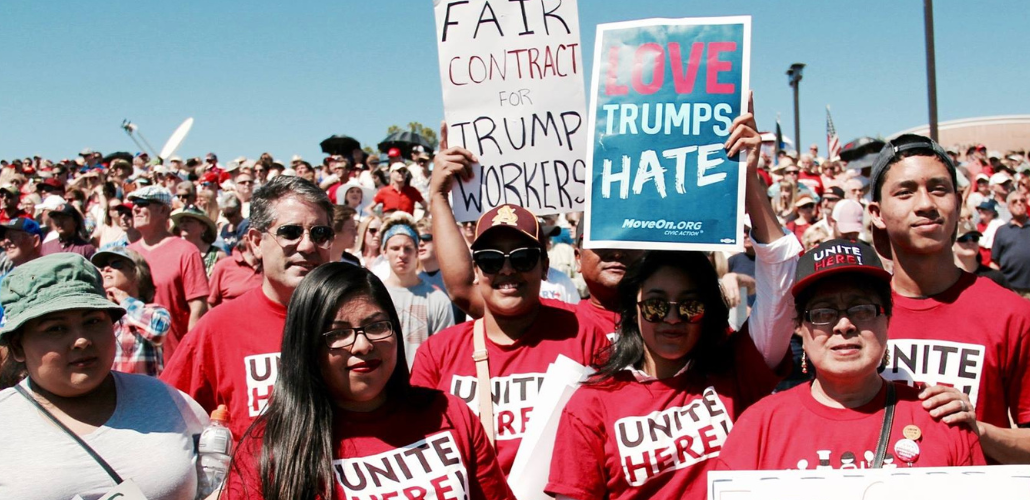Jacqueline Rayfield is a student at Harvard Law School.
In today’s News and Commentary, Senator J.D. Vance joins Donald Trump’s campaign, targeting pro-labor voters, Project 2025 includes gutting the National Labor Relations Board (NLRB), and Seattle Boeing workers prepare for a strike vote.
Senator J.D. Vance joined the Republican ticket as Trump’s vice-presidential nominee on Monday. While Vance has voiced support for unions during his career, his track record supporting labor law is mixed. Vance joined an autoworkers picket line in 2023 and claimed he is “not a fan” of right to work laws. In office, however, Vance opposed the Protecting the Right to Organize (PRO) Act, which aimed to close gaps and expand worker protections under the National Labor Relations Act (NLRA). Vance also rejected pro-worker nominees to the NLRB and voted against the NLRB’s expanded protections for employees of joint employers. Prominent labor leaders at Service Employees International Union (SEIU) and the Association of Flight Attendants voiced skepticism of Vance’s ostensibly pro-labor stance.
As the Republican party courts labor leaders, critics in the labor movement analyze how conservative policy will affect organized labor. The Heritage Foundation, a conservative think-tank in Washington, D.C., published Project 2025, a policy wish list for a Trump presidency. Critics point out that the plan includes initiatives to abolish overtime law, outlaw public sector unions, cut back on health and safety protections for workers, and eliminate the federal minimum wage.
In Seattle, Boeing workers prepare for a strike vote today. Union leadership say they hope a strong turnout for the vote will send a strong message to Boeing and the negotiating committee. Nearly 30,000 union workers are eligible to vote to authorize a strike when their contract expires on September 12. Their negotiating committee aims to win a 40% raise in their historic negotiation—the first for this group of workers in 16 years.






Daily News & Commentary
Start your day with our roundup of the latest labor developments. See all
March 4
the NLRB and Ex-Cell-O; top aides to Labor Secretary resign; Attacks on the Federal Mediation and Conciliation Service
March 3
In today’s news and commentary, Texas dismantles their contracting program for minorities, NextEra settles an ERISA lawsuit, and Chipotle beats an age discrimination suit. Texas Acting Comptroller Kelly Hancock is being sued in state court for allegedly unlawfully dismantling the Historically Underutilized Business (HUB) program, a 1990s initiative signed by former Governor George W. Bush […]
March 2
Block lays off over 4,000 workers; H-1B fee data is revealed.
March 1
The NLRB officially rescinds the Biden-era standard for determining joint-employer status; the DOL proposes a rule that would rescind the Biden-era standard for determining independent contractor status; and Walmart pays $100 million for deceiving delivery drivers regarding wages and tips.
February 27
The Ninth Circuit allows Trump to dismantle certain government unions based on national security concerns; and the DOL set to focus enforcement on firms with “outsized market power.”
February 26
Workplace AI regulations proposed in Michigan; en banc D.C. Circuit hears oral argument in CFPB case; white police officers sue Philadelphia over DEI policy.